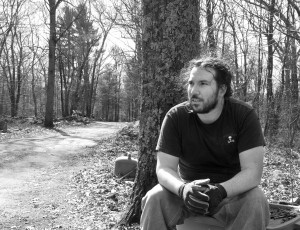
Maine has the lobster and Maryland the crab. Vermont has maple syrup, Wisconsin has cheese, Texas has the t-bone steak and California has its produce. Rhode Island, of course, has its own staple food: the quahog.
As iconic as our state clam is, though, many know little about the men who harvest them. Few, on the other hand, know these aquatic hunter-gathers better than Ray Huling, a 12th generation Rhode Islander whose new book “Harvesting the Bay: Fathers, Sons and the Last of the Wild Shellfishermen” tells the story of how, and why, his family worked the waters of Greenwich Bay.
“American food production has gone crazy over the past couple of centuries,” Huling writes, setting the scene that something has gone awry with our way of feeding ourselves. “A succession of technological and sociological changes has all but done away with the family farm and the small fishing operation. The industrialization and the capitalization of agriculture turned food wealth into capital and used that capital to further industrialize food. Americans replaced the food calories that powered human labor with coal and oil calories that powered machines.”
But the son and grandson of a bullraker, the local term for the shellfishermen who literally rake clams up off the bottom of the Bay, sees a better model in his familial trade.
“The bullraker connects our forebears with us, and he may yet connect us to our descendants,” he writes. “He may prove himself not an anachronism, but a precognition, a vision of the future. The bullraker may persist through time because he works sustainably.”
Huling’s book is a celebration of the shellfisherman: of how they work with the state to transplant quahogs around the Bay to ensure they are both healthy and plentiful; of how they work tirelessly through the cold winter – sometimes even having to resort to cutting holes in the ice to catch their prey; of their love of the water.
But, at the same time, he pulls no punches on the culture. He writes about the pirated catches from closed waters, selling illegally directly to customers and ripping off the dealers who control the markets. He also takes on the vulnerabilities and strengths of the quahogger.
“Most bullrakers deal with both inferiority and superiority complexes,” Huling writes. “They often feel as though they could not have held any other job, as if they have failed in life by resorting to quahogging. Conversely, they know they work harder than just about anyone they know, and that their profession has an immediately recognizable social purpose. They bring home meat – just the thing that brought God Almighty to favor Abel over Cain.”
Huling will be reading from his book tonight at 5:30 at the Brown Bookstore, and on Saturday at 4pm at Books of the Square.

